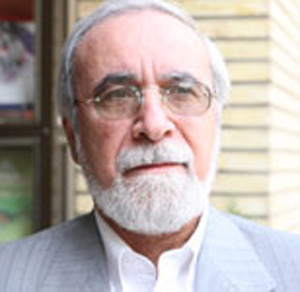Time Is Iran’s Priority in Bushehr Project
Interview with Sabah Zanganeh on Bushehr Power Plant’s Test Run

In a press conference held last Wednesday, Head of the Iranian Atomic Energy Organization Gholam Reza Aghazadeh claimed that Iran is not about the commissioning date of Bushehr Nuclear Power Plant. Meanwhile, some Iranian news agencies have reported that during his joint press conference with Sergei Kiriyenko, Rosatom Chairman, Aghazadeh had asked the press not to question the Russian official about the nuclear facility’s exact commissioning date.
Iranian Diplomacy has interviewed with Sabah Zanganeh, foreign affairs analyst on Bushehr Power Plant pre-commissioning:
What is your analysis of the pre-commissioning stage?
Before full exploitation, every project passes a pilot stage that identifies the likely problems of the project. Bushehr Power Plant is not an exception.
As Iranian officials have stated, Western technology of Bushehr Power Plant has given place to Eastern technology. Doesn’t this hinder an already overdue project?
The technological shift has been carried out several years ago, long before the pre-commissioning stage. Initially, the project was to be accomplished by Germans and they actually took the primary steps. However, West Germany, France and the United States withdraw from the project and Iran decided to hand the project to Russians. With their unique methodology, Russians were forced to conduct changes in Bushehr Power Plant and render it compatible with their own technology.
Countries try to keep a monopoly on their distinctive method of fuel production or equipment manufacture, though the processes and functions are the same. This is not negative per se, but brings with itself limitations. However, there is the question that to what extent reliance on one country’s exclusive technology restricts Iran? Legally, Iran should set regulations that guarantee its rights.
Russians will have full control over Bushehr Power Plant’s activities and will provide its nuclear fuel. How will this reinforce their position –technologically and politically- regarding Iran’s nuclear activities?
Naturally with Russian technology applied, and with Russian equipments, Russian fuel, and Russian design, this country will have a strong presence, both in terms of training human force and monitoring and running the power plant. This will provide them with a technical privilege whether in this project or other projects. Politically, this can turn into a soft spot for Iran, unless our country implements other technologies to increase its maneuvering power. Iran can transfer or copy other countries’ technologies and avail itself of the advantages. But whether this is economic or not, is an issue that calls for serious attention.
With the test run it seems that construction schedule of Bushehr Power Plant is not a priority for Iran anymore and commissioning the nuclear facility has gained importance. What is your opinion?
I’m not sure if the time priority has become less important. Priority can be in terms of time, financial issues, technology or human force. Technological and human force matters have now become clear for Iran. Our country has learnt many a great lessons from the Bushehr project and what it currently follows is running the nuclear facility as quick as possible to make the intended profits.
Iranian Diplomacy has interviewed with Sabah Zanganeh, foreign affairs analyst on Bushehr Power Plant pre-commissioning:
What is your analysis of the pre-commissioning stage?
Before full exploitation, every project passes a pilot stage that identifies the likely problems of the project. Bushehr Power Plant is not an exception.
As Iranian officials have stated, Western technology of Bushehr Power Plant has given place to Eastern technology. Doesn’t this hinder an already overdue project?
The technological shift has been carried out several years ago, long before the pre-commissioning stage. Initially, the project was to be accomplished by Germans and they actually took the primary steps. However, West Germany, France and the United States withdraw from the project and Iran decided to hand the project to Russians. With their unique methodology, Russians were forced to conduct changes in Bushehr Power Plant and render it compatible with their own technology.
Countries try to keep a monopoly on their distinctive method of fuel production or equipment manufacture, though the processes and functions are the same. This is not negative per se, but brings with itself limitations. However, there is the question that to what extent reliance on one country’s exclusive technology restricts Iran? Legally, Iran should set regulations that guarantee its rights.
Russians will have full control over Bushehr Power Plant’s activities and will provide its nuclear fuel. How will this reinforce their position –technologically and politically- regarding Iran’s nuclear activities?
Naturally with Russian technology applied, and with Russian equipments, Russian fuel, and Russian design, this country will have a strong presence, both in terms of training human force and monitoring and running the power plant. This will provide them with a technical privilege whether in this project or other projects. Politically, this can turn into a soft spot for Iran, unless our country implements other technologies to increase its maneuvering power. Iran can transfer or copy other countries’ technologies and avail itself of the advantages. But whether this is economic or not, is an issue that calls for serious attention.
With the test run it seems that construction schedule of Bushehr Power Plant is not a priority for Iran anymore and commissioning the nuclear facility has gained importance. What is your opinion?
I’m not sure if the time priority has become less important. Priority can be in terms of time, financial issues, technology or human force. Technological and human force matters have now become clear for Iran. Our country has learnt many a great lessons from the Bushehr project and what it currently follows is running the nuclear facility as quick as possible to make the intended profits.

